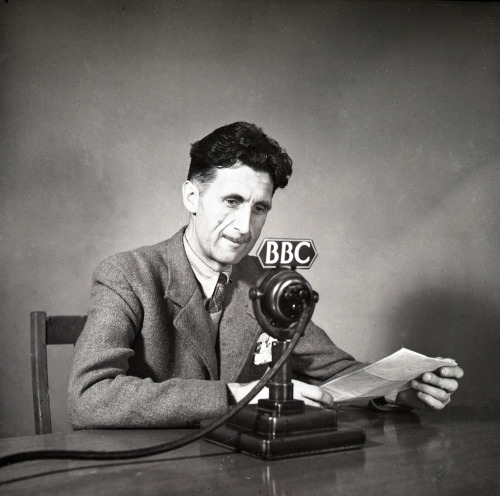The Barbican's Total Immersion Day Boulez at 90, came to a climax with
Notations 1, 7, 4, 3 & 2 and
Pli selon pli. A grand climax indeed, for these are pieces scored for very grand forces indeed - yet grandeur is not the point. This palette provides a spectacular range of colours, which Boulez employs with exquisite subtlety. Although Boulez is now approaching 90, I don't think we have yet truly begun to understand the possibilities he opened up with his music. Even his propensity to revise is a reminder that ideas don't freeze but continue to inspire and develop. With every performance, we learn, and live, more fully.
The last time I heard
Pli selon pli live was when Boulez himself conducted the Ensemble Intercontemporain. This was at the end of a long tour through Europe, so I thought he looked frail because he was tired. He kept changing his spectacles, and cut out some parts of the piece (as a composer is entitled to do). Earlier this year, he wasn't able to attend a major concert in his honour in his home territory, Baden-Baden. That last London
Pli selon pli might have been Boulez's last major performance. But the music will, I think, regenerate forever. François-Xavier Roth, one of the many good Boulez specialists these days, was originally scheduled to conduct, but had to pull out at the last moment. Thierry Fischer conducted the BBC Symphony Orchestra in his place, with Yeree Suh as soloist.
Stéphane Mallarmé's original poems described his response to Bruges, a city of canals, where the boundaries between land and water are blurred. A lot like Venice, which inspired Britten, Nono, Berio and even Erich Korngold. Hence the concept of "folds upon folds", layers upon layers. In this ambiguous, undulating landscape, familiar landmarks blur, always elusive and tantalizing. For me, anyway, it's a voyage of inward exploration.
.
Pli selon Pli begins with a single explosive
burst. It's significant, for the work is built on single chords and
cells, every colour kept as pure as possible. As in impressionist
painting, where brushstrokes shine, as in Debussy, whose influence hovers
implicitly. At the core of the orchestra is the celesta, behind the
conductor, five harps behind it, supplemented by xylophones, marimba, metallic bells and piano used as a percussion instrument. Also significantly, to those who remember Boulez's connection to Mahler, the guitar and mandolin, which figure so decisively in Mahler's
Symphony no 7, where they play much the same role as a human element in a territory of dreams. Perhaps they even suggest the idea of an eternal troubadour, journeying through time (yet another of the "layers" in the piece).
With textures as diaphanous as these, every note counts: careful
listening mandatory. This is chamber music on a large scale, where
listening and silences are part of the process.
Pli selon pli is an innovation in the art of writing for voice. Boulez doesn't paint words, but distils them to their essence. Sometimes words fragment into abstract sound, the poem completed as it were, by singer and players together, in invisible layers. This performance was greatly enhanced by the soloist Yeree Suh, whose experience with the piece paid off well. She has a lighter, more baroque voice than Barbara Hannigan, closer to the moonlight qualities of Christine Schäfer, whose recording with Boulez and Ensemble Intercontemporain remains the benchmark. Suh 's high, delicate voice suggests emotional delicacy that gives the piece its magic, yet her delivery was firm and clear: the guiding thread through this elusive labyrinth.
Mallarmé's first poem,
Don
(Gift), has images, but no grammar. Words are separated by spaces
filled by dots, which are as essential to meaning as the words
themselves. Boulez expresses this with sequences of single chords,
rippling around the voice. You're listening to the spaces and thinking,
while the voice stretches forwards, searching and exploring. In this
first poem, meaning is suggested by images of rock-like harshness -
basalt. lava, winter - contrasted with images of ephemera - foam on
waves, memory, loss. The word "hiver" (winter) the
single notes around the voice prickle like penetrating frost, the sea itself
frozen hard.
Ce lac dur oublié que hante sous le givre le transparent glacier".
The Improvisation on
Une dentelle s'ablouit
combines Mallarmé's puzzles with Boulez's intricate structures, this
time in reverse. Like lace, the soprano's lines trill and twist -
horrendously difficult to sing - but behind her the music unravels.
Whispering sibilants of cymbals being brushed, a fairly long passage for
maracas. Then, as if brought to life by the line flotte plus qu'il ensevelit,
the flutes emerge floating the vocal line that's subsumed behind the
orchestra. Deftly placed silences again - a long gap between "au creux
néant" and musicien" to emphasize dormant creation. Similarly, emphasis
on the word "le sein", the key word in
"Selon nul ventre que le sein filial on aurait pu naître".
Mallarmé throws a wild card with multiple puns on vowels in
A la Nue Accablante Tu
but Boulez parries with sound that extends the vowels and cuts across
them with sharp sibilants. Again, the hard images from the beginning of
the cycle, "basse de basalte et des laves", Suh's legato rising and falling like the waves of the sea
implicit in the symbols of foam and shipwrecks. The orchestral cells
break into patterns that might suggest water, light, churning like the
motions of waves. Gradually a new perspective
emerges. Trumpets, tuba, tubular bells, so reminiscent of Messiaen that
it feels like a deliberate reference, especially given the meaning of
this work as a whole. Perhaps Boulez is referring to the penultimate section of
Et exspecto resurrectionem mortuorum, and to the end of Time itself. But perhaps it's also a reference to Messiaen himself, Boulez's spiritual father. As Pierre-Laurent Aimard has said, sons defy their fathers in order to mature, it's the way of Nature. Boulez scrapped with Messiaen but their bond was so close that it could not break. This reaffirms the meaning of
le sein (the breast). The last section,
Tombeau consists of one phrase, "
Un peu profound ruisseau calomnié la mort", This, for me, gives
Pli selon pli its intense emotional power.
Boulez's vocal writing doesn't get nearly the respect it deserves, perhaps because there's so much in his music that fascinates. "Poetry beyond words" I wrote earlier this week about Birtwistle, Carter, Holt and Anderson at the Wigmore Hall (
see more here). Boulez's music takes off above and beyond mere words, opening out new possibilities of feeling and of expression. As a man, Boulez is exceptionally well read and interested in art (he collects Paul Klee) . In an era where the very word "intellectual" is a term of abuse, we need people like Boulez more than ever.





